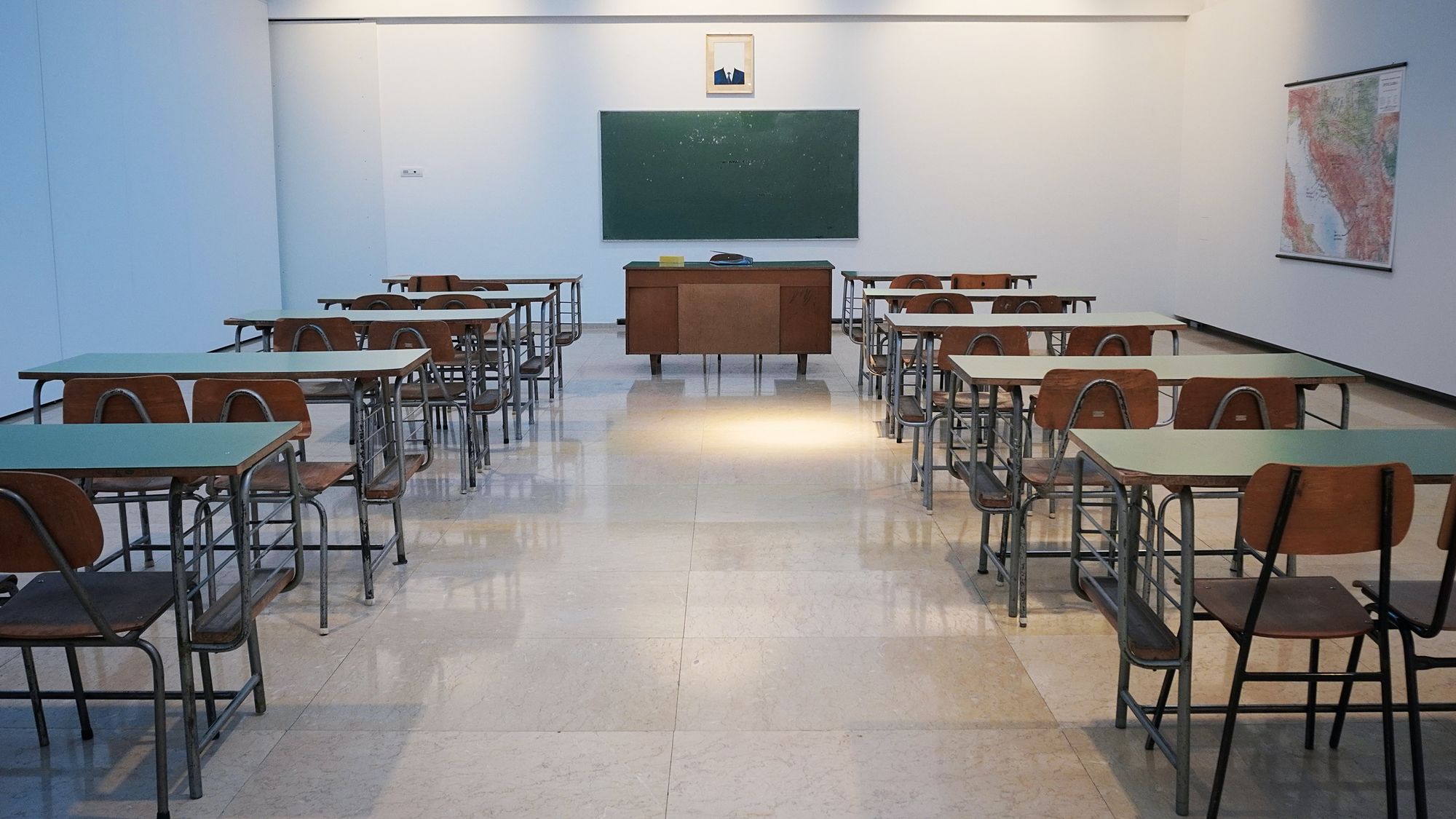UNDERSTANDING EACH OTHER
A conversation with Matteo Lancini

What is the social impact of culture in the younger generation?
You need to ask me easier questions. I understand what you mean but by culture we mean social impact, we mean everything. To answer I need to understand what we mean by culture. Because the topic of culture has to be delimited within an important issue: what are cultures and what are youth cultures. In my opinion, the main aspect of culture is related to the affection aspect of the person. The culture of music, the culture of television, the culture of school. The proposals being made primarily by schools, but as well as by cultural organizations, are within a preordained system of adults who are so fragile that they do not realize who they are facing: they are in no way attuned to the affective, relational, emotional, current and future system of the new generations.
Is it a language issue?
No. I take my cue from your first question and say: this is a question that I don’t understand and can’t answer. I take it as a dimension of what happens very often. Young people have to try to deal with adults who make a proposal that starts with the adults’ idea about culture, but without asking questions about how it works for the other person. And it’s not a problem of empathy. It’s a problem of what it means to be born in the 2000s in front of adults who make propositions that are more functional for themselves to be, as it were, somewhat authoritative and simplifying without doing, instead, what I devote my life to: understanding the other person, who he is, asking him questions and, therefore, making a proposition that is compatible with him, based on who teenagers really are. So, coming back to this, we need to understand what the cultural impact of generations is, because today’s culture does not take into account what it means to build a youth culture and what is culture for youth. And I really don’t have a clue, also because we identify youth as a category only because we need it for discussion. But young people are not a category and so for one person culture can be Neapolitan neo-melodic, for another culture is an ideology. And so, what is culture? You tell me. Culture can be an art exhibition, cinema, music, theater, Chiara Ferragni, the Sanremo Festival. Today, in such a complex and fluid society, the definition of culture is individual, everyone has their own vision of what they mean by culture. I can only try to say what youth cultures are: the way every generation constructs forms of experimentation around the evolution of its own identity based on role models and behaviours. So clothing is a way of culture. The music you listen to is a way of making culture. The way through which you build relationships and love, the culture of the body. By youth cultures we therefore mean the ways in which, during adolescence, one is called upon to construct one’s own identity, partly by drawing inspiration from role models you find around yourself, and partly by creating it from scratch.
So what can and should cultural operators do?
First, you have to know your interlocutors, what view they have of the world, what they mean. There is always too often a dimension where there is a lack of listening to who the other person is, where you are not really talking to young people, but you are talking to the young people in your mind. Young people don’t find adults they can talk to because the adult is too busy saying “I’m going to propose to you now,” while their needs are to express much more the sense of failure, the pain, the fear of not succeeding, the fear of disappointing the adult, the fear of disappointing themselves, the internalized expectations in a society where success, popularity, failures have been removed from the way of growing up in the family, the school, the Internet society.
What kind of activities to propose?
It depends on the situation. Today’s best teachers know that learning comes through the construction of knowledge from below and the promotion of error as a constituent part of knowledge. It is in this sense, in my opinion, that a intergenerational culture can be produced. After that, the forms through which everyone brings it out are personal: one boy may be good at speaking, another at playing an instrument, one at drawing, another at writing, another still at producing content as a youtuber or influencer. Still, they are all forms of culture. Are there differences between the various educational levels (secondary school, university, etc) as regards the predisposition to listen to young people and the formulation of cultural proposals? There are 41,000 schools in Italy, we are talking about 900,000 teachers. And each school functions in its own way, each classroom functions in its own way. And the university is yet another thing again because we are talking about young adults, where there is no longer a group/class, there is no structured subject to possibly make a unified proposal to. I think the real issue is that schools, in general, have been detached from children and their needs for a long time. It’s true that in recent years secondary schools have tried to open up to listening and prevention activities, but this remains limited to a few schools in specific areas. In most cases there is a lack of real attention to cultural production, to self-expression, to teaching that does not start at a desk. Secondary school is the place where the school dropout phenomenon is born (in 90% of cases it occurs in the two last years of school) and where learning is conceived as repeating back to the teacher what they have just said. What is needed instead is a school where teenagers can build themselves up and learn more about the world of work. Because culture in adolescence has to do with the construction of an identity linked to the realisation of oneself and one’s future. Learning should be used for the process of constructing your own identity, your own way of understanding culture, your relationship with the environment, with knowledge, with art, music, theatre, with your own body. Instead, too often learning is understood as passive behaviour, in which one listens to an adult telling one what culture is, a ‘prefabricated’, ‘objective’ culture and, moreover, one based on a subdivision of knowledge that no longer makes sense. In fact, dividing up chemistry and physics, history and geography, was an entirely arbitrary invention that occurred at a certain point in history. Today, in the era of the internet and the mixing of knowledge a school that no longer keeps subjects separate, but rather deals with broader topics, such as the sustainability of the planet, suffering, pain, etc, is needed. So in order to make teenagers feel part of a cultural process in the making, these aspects should be changed, both in how the relationship with the outside world is understood and in the relationship with learning and knowledge.

The sense is an approach where you tell the young people “this is your space, even a wide one, do what you want,” but it’s something where the generations are dialoguing, building together. Do teenagers care about confrontation with other generations?
I think so. The issue is that we have to place this question, precisely because of this, within the contention with which we formulate a cultural proposal for teenagers: being in a school and building a learning process that lasts every day for 5, 6 or 8 hours a day is different than meeting them only once for 2 hours. And, also, it is necessary what group we are addressing. A spontaneous group? A group without a specific motivation? An obligatory group? For 30 years we as Minotaur have been building only ad hoc projects because if you really want to be credible you have to build a project based on a number of variables: who the young people are, what they want, where they are coming from, who is funding the project, etc.
An example?
I recently presented research on in-depth cultural festivals and youth participation at Book City. These festivals are often accused of living off the volunteers who are almost all teenagers or university students and who respond in consistently extraordinary numbers. Why do they do it? Because they are proposals in which adults make young people feel that they belong to a territoriality, using the right protagonism, giving them a role, a t-shirt, making them feel part of a project that brings something to the territory. With all the limitations of the case, these experiences testify that today’s teenagers do not need pre-packaged products, nor do they oppose the adult regardless, but they need to be summoned and feel like protagonists of a project, an experience that makes them feel part of the process with roles, sometimes voluntary, sometimes paid. And that is what schools should do as well. Often such initiatives raise controversy from third-party actors who denounce the exploitation of children. What do you think about his? True, this is also one of the problems with the cultural festivals I mentioned earlier. There should be some discussion on the possibility of remunerating any roles assigned to young people. With the PNRR a lot of money is coming in to fund these activities, so you could allocate it specifically to young people...

Matteo Lancini is a psychologist and psychotherapist with psychoanalytic training. President of the ‘Minotauro’ Foundation in Milan and lecturer at the Department of Psychology of the University MilanoBicocca and at the Faculty of Education of the Università Cattolica of Milan. He is director of the Master’s Degree Course “Prevention and treatment of internet addiction in adolescence
